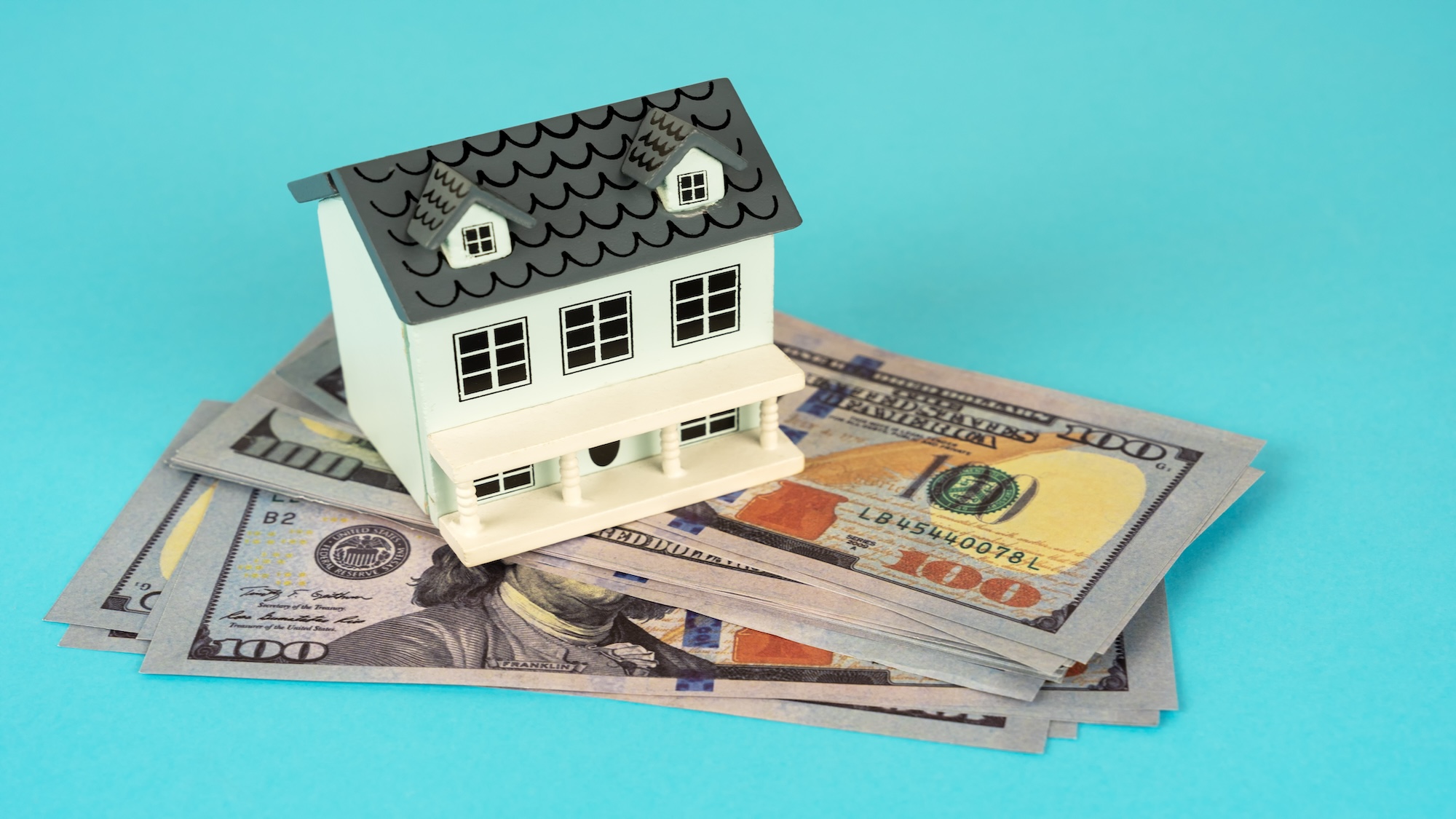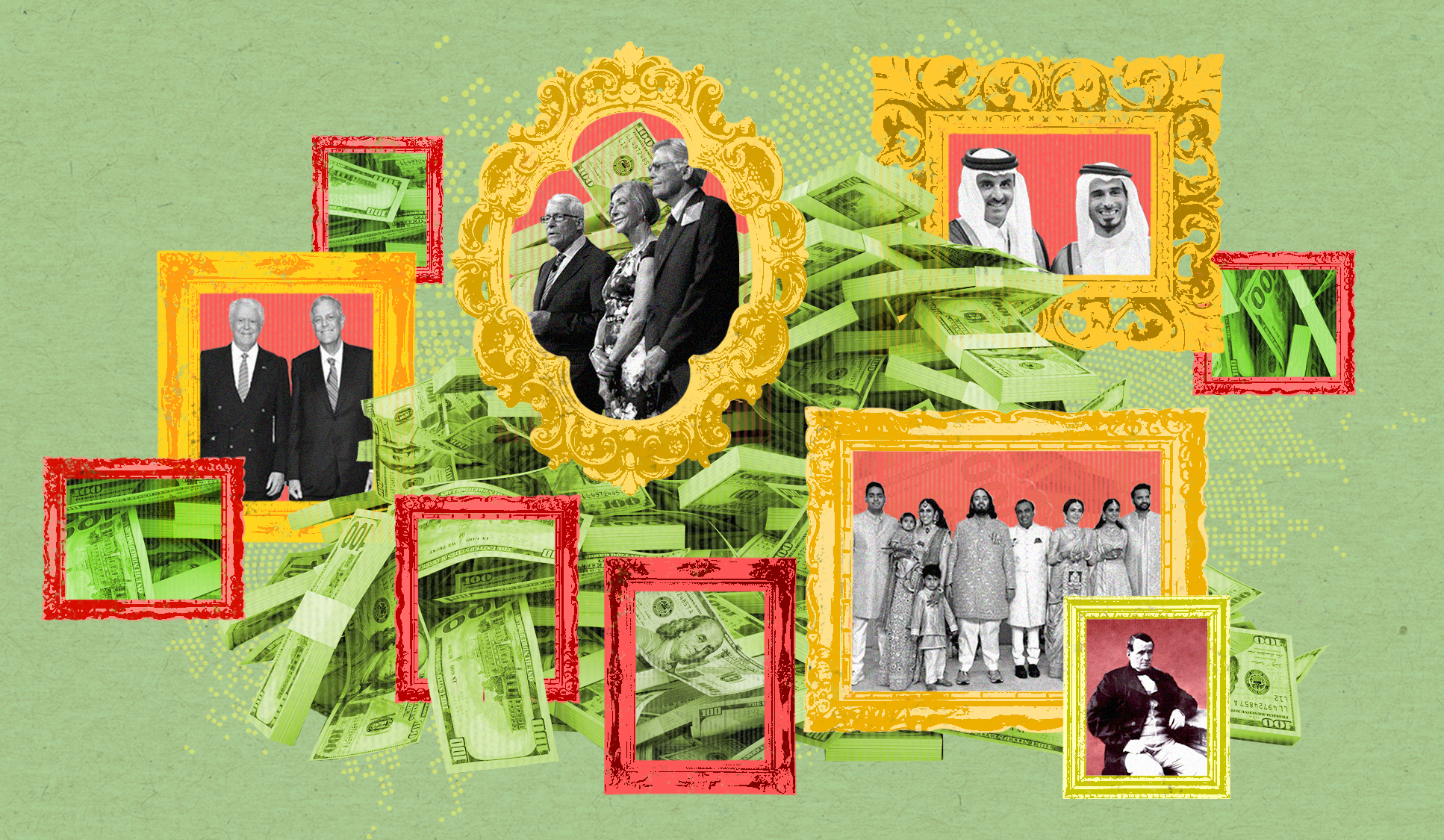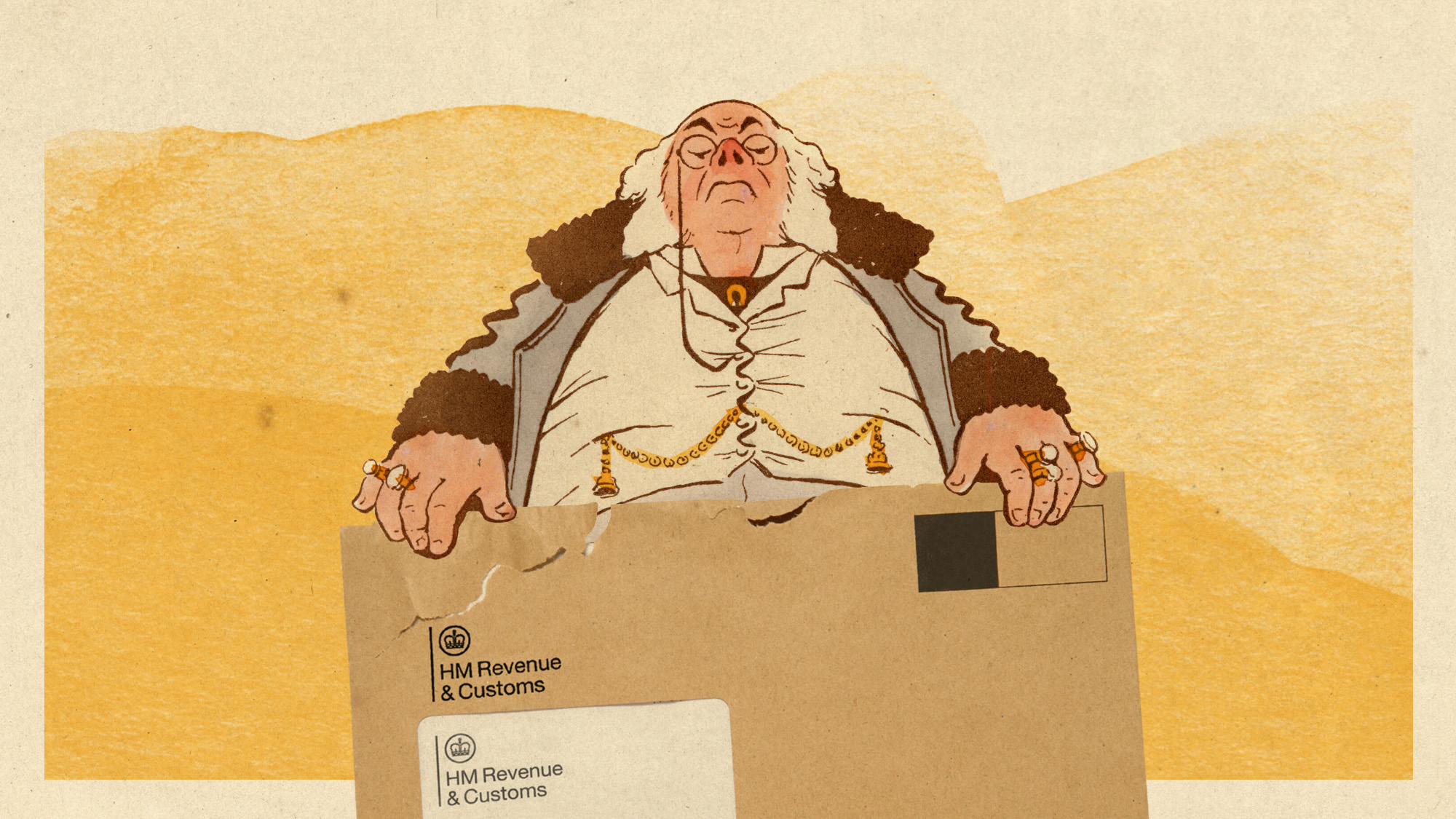Why household wealth took off during the pandemic
The Covid-19 pandemic caused a lot of pain and hardship, but new research shows it also left most Americans wealthier


A free daily email with the biggest news stories of the day – and the best features from TheWeek.com
You are now subscribed
Your newsletter sign-up was successful
The Covid-19 pandemic was undoubtedly an era of economic hardship for people across the United States. Many jobs vanished and workplaces went dark. There is new evidence, though, that individual households fared better than most people realized in those hard times.
The Federal Reserve's recently released Survey of Consumer Finances, conducted every three years, found that household wealth in the U.S. actually grew an at unprecedented rate during the pandemic. The value of houses, stocks and other commodities rose significantly during the Covid-19 crisis.
The Fed's data sheds some light on how savings, financial assistance and other contributors put many American households in an unexpectedly stable position as the perfect storm of the pandemic swirled around them.
The Week
Escape your echo chamber. Get the facts behind the news, plus analysis from multiple perspectives.

Sign up for The Week's Free Newsletters
From our morning news briefing to a weekly Good News Newsletter, get the best of The Week delivered directly to your inbox.
From our morning news briefing to a weekly Good News Newsletter, get the best of The Week delivered directly to your inbox.
What did the Federal Reserve find?
The median net worth of American families grew 37% from 2019 to 2022, according to the survey. Not only is this a huge jump considering the economic uncertainties of the pandemic, it's also "the largest since the Fed started its modern survey in 1989," CNBC reported. The Covid-19-era wealth bump is more than double the prior growth record of 18% between 2004 and 2007.
That 37% increase left U.S. households with a median net worth of $192,000, according to the report. Median and mean household incomes also rose during the three-year period by 3% and 15%, respectively. For families that owned homes, median housing values jumped from $139,100 to $201,000.
Beyond that, 28% of families reported "that their income during the 2021 calendar year differed from its usual amount — that is, their 'usual income' — reflecting elevated shares of both families with higher-than-usual income and families with lower-than-usual income," the survey said. It noted that these overall higher figures were "near-universal across different types of families, grouped by either economic or demographic characteristics."
The data does show that the growing prosperity was not equally distributed. Income increases "were experienced across the income distribution but were largest at the top, consistent with some increase in income inequality over this period," the survey said. At the same time, Americans "made nearly across-the-board financial progress in the three years that include the pandemic," The New York Times reported. Along with the jumps in household income and wealth, "savings rose. Credit card balances fell. Retirement accounts swelled."
A free daily email with the biggest news stories of the day – and the best features from TheWeek.com
This snapshot of a strong economy came with a caveat, however: Rapid inflation "eroded some of the gains by making everyday life more expensive," the Times noted. For example, the 3% growth in median household income would have been a robust 20% without adjusting for inflation.
Why did the Covid-19 pandemic leave people richer?
With nowhere to go and less to buy, Americans saved their money during the pandemic. But another part of the explanation is government assistance. "During the pandemic, many households received financial windfalls from the government in an effort to tide families over amid widespread business shutdowns and 22 million layoffs," USA Today reported. This help included "three rounds of stimulus checks, enhanced unemployment benefits and a pause in student loan repayments."
While the pandemic temporarily decimated the economy, "the rapid recovery, fueled by relief such as stimulus checks and extra unemployment aid, helped bolster many households," CBS News reported
As people began looking for new ways to make money during the pandemic, many also turned to Wall Street — "the share of families owning stocks increased from 15% to 21%, the largest on record," USA Today reported.
And while debt levels didn't change much during the pandemic, many households "were in a better position to cover those debts than they had been earlier," NPR said. This can be partially seen in the percentage of households that declared bankruptcy, which fell to just 1.3%.
All in all, "millions of households saw their wealth jump during the pandemic thanks to gains in the value of their homes and investments," CBS reported. The pandemic did not end "decades of widening disparities between the richest households and everyone else," however, and many of those disparities fell along racial lines.
Justin Klawans has worked as a staff writer at The Week since 2022. He began his career covering local news before joining Newsweek as a breaking news reporter, where he wrote about politics, national and global affairs, business, crime, sports, film, television and other news. Justin has also freelanced for outlets including Collider and United Press International.
-
 How the FCC’s ‘equal time’ rule works
How the FCC’s ‘equal time’ rule worksIn the Spotlight The law is at the heart of the Colbert-CBS conflict
-
 What is the endgame in the DHS shutdown?
What is the endgame in the DHS shutdown?Today’s Big Question Democrats want to rein in ICE’s immigration crackdown
-
 ‘Poor time management isn’t just an inconvenience’
‘Poor time management isn’t just an inconvenience’Instant Opinion Opinion, comment and editorials of the day
-
 Tariffs have American whiskey distillers on the rocks
Tariffs have American whiskey distillers on the rocksIn the Spotlight Jim Beam is the latest brand to feel the pain
-
 Argentinian beef is at the center of American farmers’ woes
Argentinian beef is at the center of American farmers’ woesThe Explainer ‘It feels like a slap in the face to rural America,’ said one farmer
-
 The struggles of Aston Martin: burning cash not rubber
The struggles of Aston Martin: burning cash not rubberIn the Spotlight The car manufacturer, famous for its association with the James Bond franchise, is ‘running out of road’
-
 What Saudi Arabia wants with EA video games
What Saudi Arabia wants with EA video gamesIn the Spotlight The kingdom’s latest investment in gaming is another win for its ‘soft power’ portfolio
-
 New York court tosses Trump's $500M fraud fine
New York court tosses Trump's $500M fraud fineSpeed Read A divided appeals court threw out a hefty penalty against President Trump for fraudulently inflating his wealth
-
 The world's 10 richest families
The world's 10 richest familiesIn Depth Luxury retailers, hereditary monarchs and the heirs to the Walmart fortune dominate the list of the world's wealthiest clans
-
 Pros and cons of a wealth tax
Pros and cons of a wealth taxPros and Cons Raising revenue and tackling inequality vs. the risk of capital flight and reduced competitiveness
-
 The FTC is pushing back against false 'Made in the USA' claims
The FTC is pushing back against false 'Made in the USA' claimsThe Explainer The agency has dubbed July 2025 'Made in the USA' month
